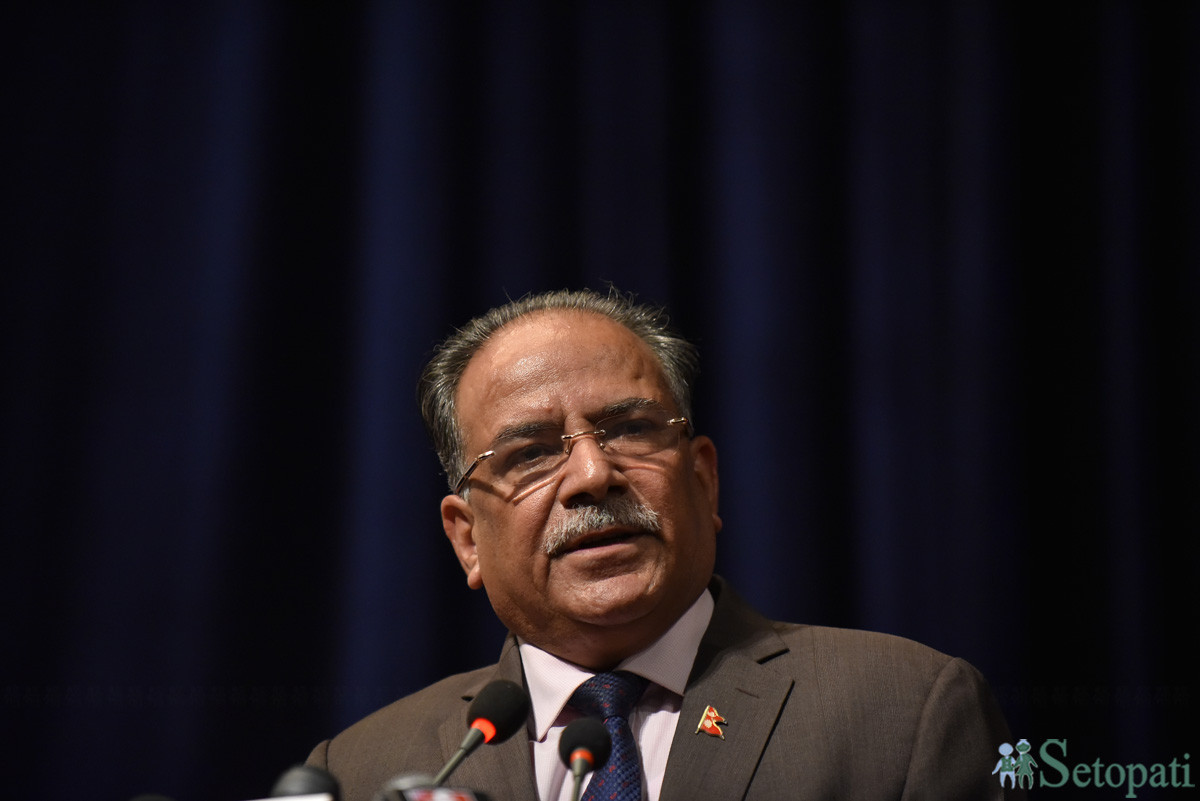As someone steeped in liberal values it certainly feels odd and slightly uneasy to defend a leader who carried—or perhaps still carries—a huge baggage of totalitarian ideology that is antithetical to my own political beliefs. Despite the deep-seated cognitive dissonance, however, I am making a pitch for a liberal Prachanda not because I condone his actions as a supremo of the armed uprising, but because I think his political survival is necessary for a progressive and forward-looking Nepal that is focused on the principles of individual rights and dignity. Despite his personal and political flaws, which he himself has openly acknowledged on several occasions—a rare instance among Nepali politicians or any politicians for that matter—I believe that Prachanda has been a force who has championed the liberal cause in Nepal. At a time when zealotry is rearing its head and the moderates are hobbled by their own incompetency and lack of leadership, Prachanda’s political survival has become indispensable to prevent the country from sliding backwards from its social and political gains.
Even as the country continues to wobble under the weight of egotistical power jockeying of a few politicians (including Prachanda), there has in fact been some significant progress in matters of individual rights, minority rights and their access to justice in the past few years. For all its destruction, any reasonable person who is not driven by personal agendas, will agree that the Maoist Revolution empowered the section of the population that had heretofore been relegated to live as second-class citizens. It is safe to say that the Maoist uprising threw away the yoke of arbitrary customs and traditions that had kept the minorities in positions of permanent subservience and has compelled the hitherto Kathmandu-centric governments to pay attention to broader Nepal, beyond the metropolis. To be sure, the Maoists opened the floodgates for both the good and the bad, and there is no doubt that Prachanda’s earlier misgivings toward the multiparty democratic system weakened both his political standing as well as people’s trust in the newly established system. Unfortunately, but not surprisingly, the progressive political achievements are now under attack as some political opportunists try to roll back the clock by undermining every liberal value—from secularism to constitutionalism to republicanism.
It is in this context I believe that Nepal needs a liberal Prachanda more than ever. Not the self-serving Prachanda confined to his doctrinal ideology who is always on the lookout for opportunities to burnish his personal image, but a Prachanda who speaks to and champions the needs of the poor, the marginalized and the vulnerable. Nepal needs a Prachanda who consistently keeps the interest of the vulnerable and the marginalized at the front and center of his politics and is guided by a moral imperative to do good for those who have been wronged in the name of caste, creed, geography, or economic status. Nepal needs a liberal Prachanda who doesn’t engage in an unwarranted nationalistic jingoism, who doesn’t make over-the-top ridiculous claims, who doesn’t engage in short-sighted tactical power brokerage, but a Prachanda who is less a politician than a moral character who transcends—or at least tries to transcend—partisan politics. Nepal needs a Prachanda who isn’t afraid to lose elections, but nevertheless finds ways to champion the causes of the less privileged. Nepal needs a Prachanda who is chastised by his past mistakes, who isn’t hungry for power, who is ready to forgo the limelight, and who understands that he doesn’t always have to be at the center of power and politics to do good.
Perhaps I might be asking too much from Prachanda, for how can Prachanda live without being Prachanda, a leader who shot to power by brute force of the gun? How can the man, the rebel, and the commander abandon his core ideology that revolves around power grabbing and gaining control of the state? The road ahead may be difficult, but it is doable. The name Prachanda now needs a complete makeover as does the character behind the name. Prachanda needs to start a revolution once again, but this time the revolution should be internal, within himself, and the guiding principles of that revolution should be morality, equality, and justice. Nepal doesn’t necessarily need a Prachanda in power, but it needs the voice of a liberal Prachanda who can lead a moral revolution toward an open, tolerant, kind, and just Nepal.

